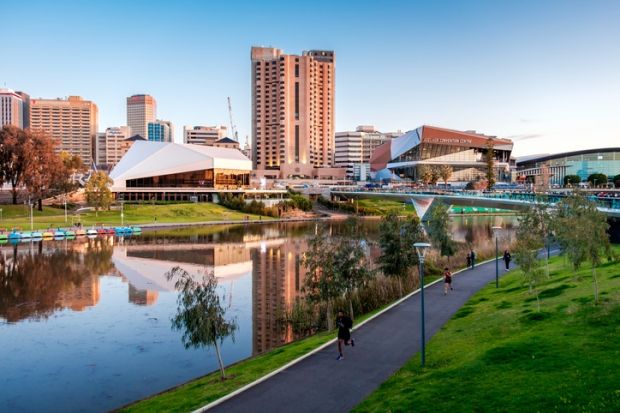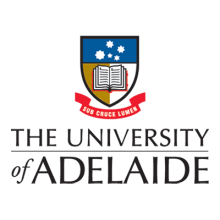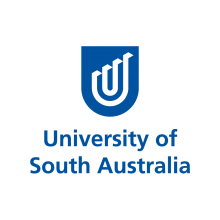One of the biggest university mergers in global history appears likely to proceed after a key group of state parliamentarians endorsed the proposal.
Following a three-month inquiry, the Joint Committee on the Establishment of Adelaide University has approved the proposed union of the universities of Adelaide and South Australia.
“On the balance of the evidence considered by the committee, the economic and social interests of…South Australia are likely to be advanced by the amalgamation,” the group’s final report says. “Competition between universities globally remains fierce [and] that competition is likely to increase over coming decades.”
The endorsement is neither binding nor unanimous, with the committee’s sole Greens member insisting that his party would “reserve our position on any bill that comes before the parliament”. A dissenting report from the two Liberal Party members advises parliamentarians “to fully comprehend both the opportunities and the risks” before taking a position.
“The proposal is not objectively good or bad,” the pair insist. “It is a subjective call, with opportunities and risks inherent in either approach...but to dismiss the concerns and risks without taking further steps in mitigation would be foolhardy.”
These reservations appear unlikely to scuttle the legislation giving effect to the merger. While the governing Labor Party needs an extra two votes to shepherd the bill through the state parliament’s legislative council, the committee’s two crossbench upper house members – SA-Best’s Constadina Bonaros and One Nation’s Sarah Game – are both majority report signatories.
While their report supports the merger, it urges the two universities to consider “additional risk management measures”. They include the early appointment of a new vice-chancellor, arrangements to retain “high-value researchers” and a “robust and standalone risk management unit” to avoid pitfalls in areas such as information technology, staff workloads and financial sustainability.
The committee also wants the universities to invest more in regional educational provision, commit to a new student association with ongoing funding and ensure staff and student representation on the new institution’s governing council.
Other recommendations include public consultation on the future use of excess land, including the University of South Australia’s Magill campus, which will be sold to the state government to help bankroll the merger, along with extra support for Flinders University, which is not part of the merger proposal.
Committee member John Gardner, a former Liberal education minister, told Channel 10 that the extra support was paramount “so we don’t see…the new university just eating up resources that would otherwise be going to Flinders”.
Greens member Robert Simms outlined a slew of conditions necessary for his party’s support, including a cap on the vice-chancellor’s salary, a prohibition on “gig economy-style” work and additional staff and student representation on the governing council.
“The full business case and any consultants engaged on the merger proposal [must] be made publicly available,” Mr Simms added. “The business case [must] be subject to an independent review before any consideration of the bill by the parliament.”
Deputy premier Susan Close welcomed the committee’s report and indicated that the government would press ahead with the bill. “The biggest possible risk right now to these two institutions is that this legislation is rejected or even deferred for a significant period,” she told Channel 10.
Register to continue
Why register?
- Registration is free and only takes a moment
- Once registered, you can read 3 articles a month
- Sign up for our newsletter
Subscribe
Or subscribe for unlimited access to:
- Unlimited access to news, views, insights & reviews
- Digital editions
- Digital access to THE’s university and college rankings analysis
Already registered or a current subscriber? Login












